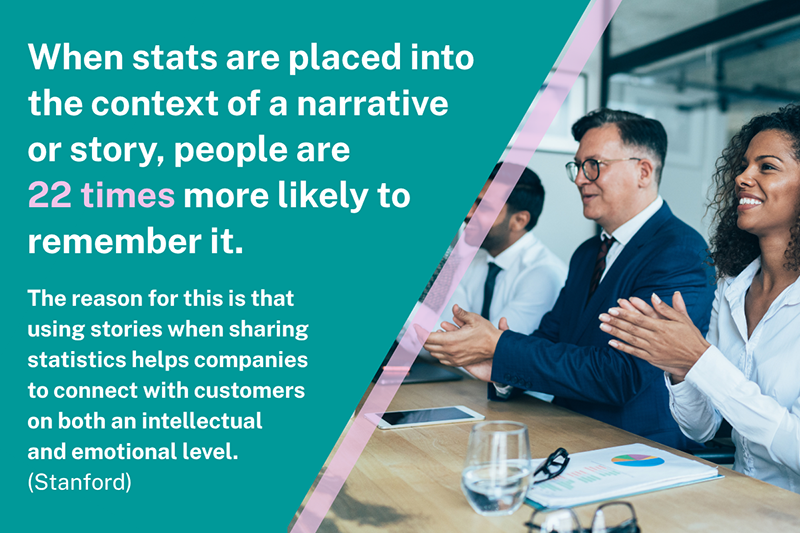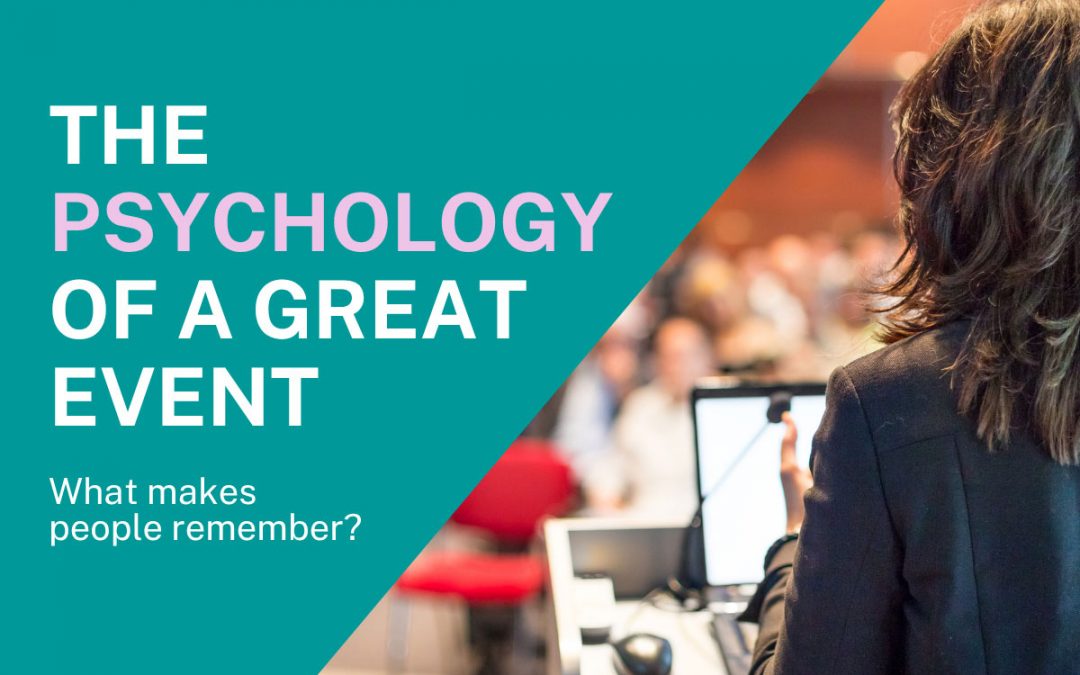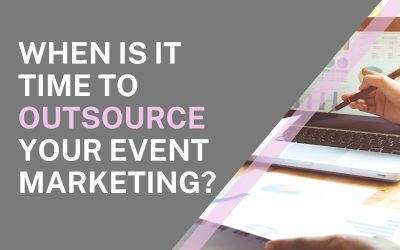Let’s face it – most events blur together.
You attend, you smile, you sip the coffee, and then… you forget.
However, the truly great ones, the ones that stay with you long after the name tags come off, are different.
That’s where the psychology of memorable events for business growth comes in. Understanding what makes people remember and how to turn your event into an unforgettable brand experience.
They make you feel something. They make you think. And most importantly, they make you care
If you’re in the business of events – whether you’re building stands, running conferences, managing webinars, or juggling event logistics on top of your marketing role, you already know the pressure.
You want your event to stand out. To drive leads. To make people talk.
So, what makes an event stick?
At Force 4 Events, we believe unforgettable events don’t happen by accident. They’re designed with intention, and a little help from psychology. So, what makes an event truly memorable? Let’s break it down.
1. Why Emotion Makes Events Memorable
Did you know that emotionally charged experiences are remembered more vividly and accurately than neutral ones. That’s because emotions activate the brain’s memory centre, the amygdala, helping us store and recall experiences more effectively.
Why this matters for your business:
If your event doesn’t make people feel something, they won’t remember your brand or your offer. And if they don’t remember you, they won’t buy from you.
How to use this:
Plan one moment that’s designed to stir emotion. This could be:
- A speaker sharing a personal story that aligns with your mission
- A short, powerful video montage showing behind-the-scenes moments of your team or clients preparing for the event – set to music that tugs at the heartstrings. Think real faces, real stories, real impact
- An inclusive experience that welcomes like-minded people together and encourages conversation
Emotion is your event’s memory glue. Stir it, and they’ll stick with you.
2. Purpose-Driven Storytelling
Research shows that storytelling increases information retention by up to 22 times compared to facts alone. That’s because stories activate multiple areas of the brain, making the experience more immersive and memorable.
Why this matters for your business:
If you’re a service provider or organiser, your story is your differentiator. People don’t remember bullet points – but they remember why you do what you do.
How to use this:
Start your event with a story. Not a sales pitch. Encouraging speakers to share:
- Stories of where they come from – what makes them different
- Who they help and why
- How do they help – a case study/story share of the impact made
Facts tell. Stories sell. And emotions make them sticky.

Source: soocial.com
3. Multi-Sensory Experiences
The more senses you engage, the more memorable your event becomes. It’s science. (And also why you still remember the smell of your gran’s kitchen.)
Why this matters for your business:
If your event feels flat or forgettable, it might be because it’s only engaging eyes and ears, which given the choice of events we have today – is simply not enough.
How to use this:
Think beyond slides and speeches. Could you:
- Community & connection: Offering a safe, welcoming space where people can meet like-minded professionals—whether that’s fellow creatives, industry peers,or potential collaborators.
- Personal development & insights: Talks, panels, or discussions that spark curiosity and leave people with something new to think about (or act on).
- Good food, good atmosphere: It doesn’t have to be fancy, but it should be thoughtful. Quality refreshments and a relaxed vibe go a long way.
- Doing something different: Injecting a bit of fun or novelty—like crazy golf, a creative workshop, or even quad biking—can break the ice and make your event stand out.
- Getting the basics right: A venue that’s easy to find, clear signage, good communication before and during the event, and a well-structured format (with clear start and end times) all contribute to a smooth, memorable experience.
If you want people to remember your event, let them feel it—literally.
4. Personalisation and Belonging
People remember how you made them feel – and nothing feels better than feeling seen. When attendees feel like your event is relevant to them and you have truly grasped what they need, they’re more likely to engage, share, and come back.
Why this matters for your business:
If your event is attracting the wrong crowd – or no crowd – it might be because it’s not tailored to your audience.
How to use this:
- Use pre-event surveys to learn about your guests
- Offer breakout sessions based on interests
- Greet people by name and with a smile
- Even small touches – like correctly spelled name badge or well briefed team on where the facilities are or the running order of events – can make a big difference.
5. The Power of Surprise
Interestingly, surprise activates the brain’s reward system, releasing dopamine and making the moment more memorable. It’s why plot twists stick with us and cliff hanger endings in movies, leave us craving for that next episode.
Why this matters for your business:
In B2B events environment, surprises can be far and few between, but they can really elevate your events game. And that is the exact reason why thinking of what that surprise could be is good business practice because it will leave a positive lasting impression about your event.
How to use this:
Plan one unexpected moment. It could be:
- A pop-up experience - when involving stallholders – be sure to encourage them to think outside the box when it comes to audience engagement. E.g. if your event audience are prioritising Linkedin, offer a free branding shoot by coming to our pop up studio on the stand. So you can finally update your profile image.
- A creative giveaway - something that will drastically improve their work or home life.
- Reward loyalty by offering exclusive discounts e.g. a special price ticket for next event, or additional perks just for previous attendees.
6. Clear Takeaways and Follow-Up
Without reinforcement, people forget 50% of new information within an hour—and up to 90% within a week.
Why this matters for your business:
If your event ROI is low, it might be because attendees don’t know what to do next.
How to use this:
Send a post-event email with:
- Key takeaways
- Photos or video highlights
- A clear next step (e.g. book a call, download a guide, join a community)
The event isn’t over when the lights go out, so keep the conversation going.
Why This Matters for B2B Growth
Whether you’re a stand builder, a conference organiser, or a marketing manager suddenly tasked with “managing the event,” you shouldn’t just focus on event logistics.
To create a genuine brand experience that will be talked of for many weeks and months after – you need to think about the speakers, event communications, and those memorable moments – to ensure they hit the mark.
Memorable events:
- Build trust
- Spark conversations
- Generate qualified leads
- Position your business as a leader
And when you design events that connect emotionally, tell a story, engage the senses, feel personal, surprise your audience, and follow up with purpose – you’re not just hosting an event. You’re creating a moment that matters.
And those moments? They’re the ones that drive real business growth.
Need help creating memorable events for business growth?
Whether you’re planning a trade show or a full-scale event, we help you turn it into a high-impact brand experience.
From boosting ticket sales to increasing conversions, we work as an extension of your team—delivering strategy, marketing, and management across the full event cycle.
Let’s connect on LinkedIn
Love what you’re reading? We share even more marketing insights, behind-the-scenes tips, and real-world wins. Follow to stay inspired, stay informed, and stay connected with a community of purpose-led even pros.
Small Events, Big Results: Rethinking Event ROI in 2026
It’s a Monday morning, the post-event report is due in an hour, and your leadership team is...
10 Signs Your Event Needs More Marketing Support (and how to fix it)
You’ve got the venue booked, the agenda locked, and your speakers confirmed. But if your event...
How Small Events Can Create Big Environmental Impact
You care, but where do you start? For teams running conferences, summits, and community events,...
Why Collaborative Event Marketing Could Be Your Team’s Best Move Yet.
Too busy to do it all? You know the feeling. You’ve got an event to market and 150 seats to fill....
When is it time to outsource your event marketing?
You’re juggling so many moving parts: email funnels, social campaigns, design assets, sponsor...
The essential guide to pre-event marketing for small business events
Events are powerful. They build community, spark conversations, and create lasting impact. But...
Five event marketing mistakes small businesses make. And the simple fixes
Hosting an event as a small business can feel like a leap of faith. You’ve invested in the...
Is your event attracting the right audience? Here’s how to tell.
You’ve poured time, energy, and budget into your event. The speakers are confirmed, the agenda is...
Event ROI: How to measure success beyond attendance
It’s Not Just About the Headcount You filled the room. Great. However did it work? It’s easy to...
Unlock Event Success: The must-have elements for high-converting sales page
If your event is packed with purpose, passion, and potential, but your ticket sales aren’t...










